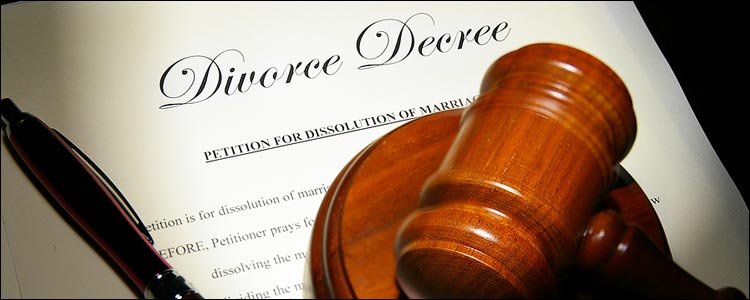Attorneys, like members of any other profession, approach the practice of law with their own personalities and unique philosophies. Clients, too, have their thoughts on how they want their cases to be pursued. It is appropriate for a client who is searching for an attorney to know “where the attorney is coming from.” Only a face to face meeting can truly convey the personality of the attorney, but to the extent that general philosophies can be put into writing, we attempt to do so here.
Practice Philosophies

Our Litigation Philosophy
The courtroom is the forum of last choice. Settlements, if fair, are encouraged and a preferred method of resolving disputes. Litigation will not be undertaken for the sake of harassment or threatened for the sake of getting a “nuisance value” settlement. If the attorney does not see the matter in controversy as fairly litigable, and with the equities favoring the client, representation of the client will not be undertaken. If upon investigation, a case once thought to fit this pattern is determined not to have merit, the attorney will counsel the client to withdraw the action and may him- or herself even seek to withdraw as counsel.
Many cases may have legal merit but nevertheless lack a moral basis to be brought (the moral element, admittedly being a reflection of the personal values of the attorney). If the moral basis to litigate is absent, the attorney will not take the case. The attorney will always fairly and fully disclose his or her reasons for declining to take your case.
Many cases on which we consult with a client can be handled well by the client without the intervention of the attorney. We will always advise a client of the advisability of “going it alone,” and will never hype an easy case just to scare a client into retaining an attorney.

Consultation Fees
As Abraham Lincoln said, “an attorney’s only stock in trade is his time.” With that adage in mind, we do charge a consultation fee for initial meetings. And in exchange for that fee, we dispense real and tangibly useful advice.
By charging a consultation fee, we remove the incentive to provide ‘teaser’ information designed to (mis?)-lead the client into believing that he or she must hire the attorney to resolve the presenting problem. (Indeed, in appropriate cases, we will actually discourage you from retaining an attorney.) If we can help, then we will be pleased and honored to be of service to you. The decision to retain the firm rests solely in the client’s sound discretion, without any “salesman-like” pressure.
So what can a client expect as a result of a consultation with our office? An honest, non-sugar coated appraisal of your situation (at least as much as can reasonably be crammed into 30 minutes). We will tell you what you need to hear. We do not attempt to tell you what you want to hear in an attempt to get you to retain our services. You will get our honest appraisal up-front.

Our Divorce Philosophy
Divorce is a tragic yet very real phenomenon in modern society. It can be one of the most painful processes a client will ever experience. It is the divorce attorney’s role to try to make things better, but he or she can only do so to the extent that relief is reasonably possible. Generally, there are deep emotional feelings involved on both sides, and these emotions frequently get in the way of good common sense. It is our job to keep our clients focused on the reasonable solutions and objectives. Except perhaps in cases of domestic violence, marital counseling is always considered by the attorneys as a viable alternative, and will be encouraged at the initial meeting.
Generally, or at least initially, divorce should not be approached as an adversarial endeavor. Your attorney can best be used as your advisor as opposed to your spouse’s adversary. Litigation is not a preferred direction, although the attorneys will certainly aggressively pursue litigation when the situation calls for it. Alternative dispute resolution devices (such as mediation) are always encouraged when feasible. See our section on Divorce Law Common Misconceptions for more info.
A main concern in any divorce is the children. While the children are not our clients in divorce actions, their interests are always a concern in any advice given by the attorney. Joint child custody is generally viewed by this firm as the best arrangement for the children, if only in name and not in practice. The parents have a duty to try to get along, and absent compelling reasons to the contrary, your attorney will always recommend “joint” as the nature of child custody. Except in extreme cases, the non-custodial parent should not be relegated to the role of a child’s visitor. He or she is a real parent.
In no event will children be used as pawns in order to gain an advantage over the other party. A request by a client to threaten a custody battle just to gain a negotiating advantage (i.e., “Let’s ask for custody. Then she will settle for less child support“) will result in a request by the attorney to withdraw from the case.

Our Bankruptcy Philosophy
We do not “sell” bankruptcies. We do not encourage them in the same fashion that we would encourage a client to prepare a Will. We prepare bankruptcy filings as a service to our clients who find themselves in financial distress. We always refrain from conduct that appears to be encouraging filing. A consultation on the subject of bankruptcy always includes a discussion of non-bankruptcy options. In appropriate cases, we suggest that the client contact the Peninsula Consumer Credit Counseling Service or similar non-profit credit counseling agency to see if help can be received there for free.
The decision to file bankruptcy is a serious one. It is one not to be taken lightly. In terms of life events, the decision is akin to that of purchasing a home, as opposed to purchasing a car. Its implications are long lasting. With this in mind, Denbigh Law Center has adopted a strict policy that a client may not retain the firm on the first bankruptcy consultation. The exceptions to this policy are rare, and are made only when a major item of the client’s property is subject to being taken by a creditor if immediate action is not taken.